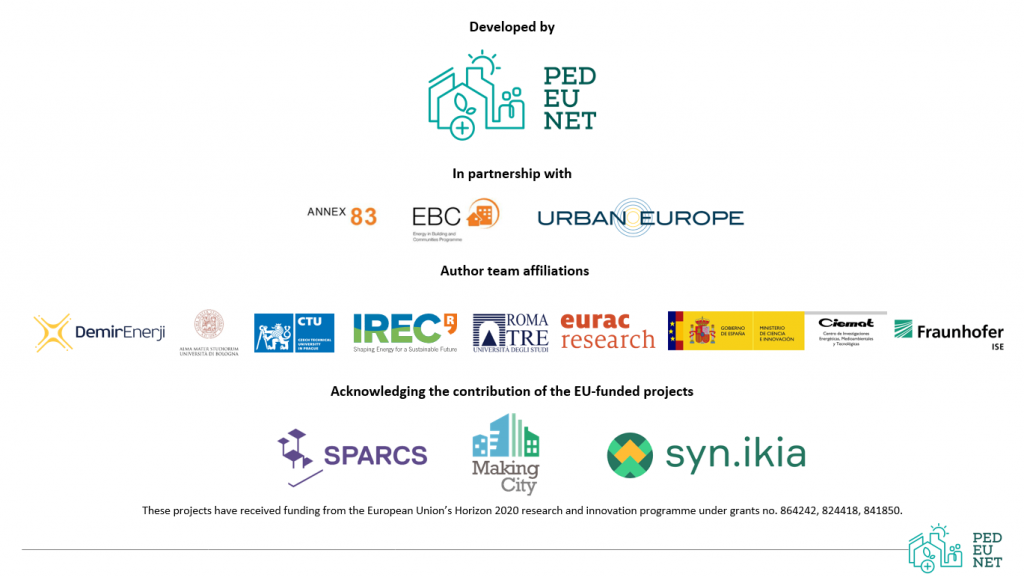| D1P001: Name of the project | |
| D1P001: Name of the project | PED-ACT - Auto characterization of PEDs for digital references towards iterative process optimisation |
| D1P002: Project assigned code | |
| D1P002: Project assigned code | 43927229 |
| D1P003: Start date | |
| D1P003: Start date | 10/22 |
| D1P004: End date | |
| D1P004: End date | 09/25 |
| D1P005: Ongoing project | |
| D1P005: Ongoing project | Yes |
| D1P006: Funding programme/financing model | |
| FP7/H2020/HEU/DUT | no |
| Interreg | no |
| National funding | yes |
| National funding | Swedish Energy Agency |
| Public-Private Partnership - please specify | no |
| Other | no |
| D1P007: Estimated project costs (Mill. €) | |
| D1P007: Estimated project costs (Mill. €) | |
| D1P008: Description of project objectives/concepts | |
| D1P008: Description of project objectives/concepts | PED-ACT extracts the main characterization of PEDs automatically by machine learning approaches, through standardisation of the common database for existing PEDs, by focusing on Sweden, Turkey, and Austria. The digital PED references are then generated, based on a multi-criteria characterization matrix, by auto-matching the development needs/priorities from different stakeholders during bilateral learning and co-design processes among four specific cities (Borlänge, Umea, Karsiyaka-Izmir, Ankara) and a county (Lower Austria). PED-ACT finally evaluates the feasibility of these digital PED references to further develop the replication/upscaling plans, towards ‘climate-neutrality and smart cities’ goals. |
| D1P009: Description of project upscaling strategies/potential | |
| D1P009: Description of project upscaling strategies/potential | PED-ACT deeply learns a wealth of information from the existing PEDs and then maps the practical needs for PED development in local contexts iteratively. There are 4 main tasks that will be useful: (1) co-development of the PED database, (2) characterization of PED using Artificial Intelligence, (3) development of digital models, (4) Co-creation for matrix of PED evaluation. |
| D1P010: Number of PED case studies in the project | |
| D1P010: Number of PED case studies in the project | 5 |
| D1P011: Case Study | |
| D1P011: Case Study | |
| D1P012: Description of project expected impact | |
| D1P012: Description of project expected impact |
|
| D1P013: Standardization efforts | |
| D1P013: Standardization efforts | |
| D1P014: Sources | |
| D1P014: Sources | |
| D1P015: Can you specify a suitable contact person regarding the load-management approach within your PED project? | |
| Name | Xingxing Zhang |
| xza@du.se | |
| D1P016: Would you be willing to share data from your PED project for research purposes? | |
| D1P016: Would you be willing to share data from your PED project for research purposes? | Yes |

Authors (framework concept)
Beril Alpagut (Demir Energy); Giulia Turci (University of Bologna); Michal Kuzmic (Czech Technical University in Prague); Paolo Civiero (Università Roma Tre); Serena Pagliulia (University of Bologna); Oscar Seco (CIEMAT); Silvia Soutullo (CIEMAT); Daniele Vettorato (EURAC Research, IEA Annex 83); Bailador Ferreras M. Almudena (CIEMAT); Vicky Albert-Seifried (FHG ISE)
Contributors (to the content)
Laura Aelenei (LNEG), Nienke Maas (TNO), Savis Gohari (OsloMet), Andras Reith (ABUD), Ghazal Etminan (AIT), Maria-Beatrice Andreucci (Universita Sapienza), Francesco Reda (VTT, IEA Annex 83), Mari Hukkalainen (VTT), Judith-Borsboom (Locality), Gilda Massa (ENEA), Jelena Ziemele (University of Latvia), Nikola Pokorny (CVUT), Sergio Diaz de Garayo Balsategui (CENER, IEA Annex 83), Matthias Haase (ZHAW, IEA Annex 83), Christoph Gollner (FFG, JPI UE), Silvia Bossi (ENEA, JPI UE), Christian Winzer (Zurich University of Applied Science), George Martinopoulos (Centre for Research and Technology Hellas), Maria Nuria Sánchez (CIEMAT), Angelina Tomova (Energy Agency of Plovdiv), Oya Tabanoglu (Demir Enerji), Jelena Brajković (University of Belgrade), Juveria Shah (Dalarna University), Michela Pirro (ENEA), Francesca Sabatini (University of Bologna)
Implemented by
Boutik.pt: Filipe Martins, Jamal Khan
Marek Suchánek (Czech Technical University in Prague)